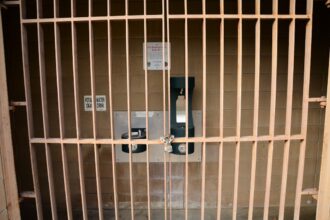Family intervention is a complex and often emotionally charged process that involves the collective effort of family members to address problematic behaviors or situations within the family unit. I have come to realize that this intervention can take many forms, from addressing substance abuse to confronting criminal behavior. The primary goal is to encourage the individual in question to seek help or change their behavior, often with the hope of restoring harmony within the family.
It is essential to understand that family intervention is not merely about confronting someone; it is about fostering an environment where open communication and support can thrive. In my experience, family interventions can be both challenging and rewarding. They require careful planning and a deep understanding of the dynamics at play within the family.
Each member brings their own perspectives, emotions, and histories to the table, which can complicate the process. However, when executed thoughtfully, interventions can lead to significant positive changes. I have seen families come together in ways they never thought possible, united by a common goal of healing and support.
Key Takeaways
- Family intervention can play a crucial role in addressing criminal activity within a family unit.
- Covering up crime as a family can create complex dynamics and challenges for law enforcement and legal proceedings.
- Signs of family involvement in criminal activity may include secrecy, unexplained wealth, and a history of legal issues.
- Family intervention can have a significant impact on criminal investigations, potentially leading to the resolution of cases.
- Family intervention can affect the legal system by influencing witness testimony, evidence tampering, and the overall outcome of legal proceedings.
The Dynamics of Covering Up Crime as a Family
Covering up crime as a family is a phenomenon that often stems from a deep-seated sense of loyalty and protection. I have observed that when one family member becomes involved in criminal activity, others may feel compelled to shield them from the consequences. This dynamic can create a web of deceit that entangles not just the individual but the entire family unit.
The motivations behind such actions can vary widely, from fear of legal repercussions to a desire to maintain familial reputation. In my reflections on this topic, I have come to understand that the decision to cover up a crime often leads to a cycle of complicity and moral ambiguity. Family members may rationalize their actions by convincing themselves that they are acting out of love or loyalty.
However, this can create an environment where honesty and accountability are sacrificed for the sake of protecting one another. I have seen how this can lead to long-term consequences, not just for the individual involved in the crime but for the entire family, as trust erodes and relationships become strained.
Signs of Family Involvement in Criminal Activity

Identifying signs of family involvement in criminal activity can be a daunting task, especially when emotions run high and loyalties are tested. I have learned that certain behaviors may indicate that a family is entangled in criminal activities. For instance, sudden changes in lifestyle, such as unexplained wealth or increased secrecy, can be red flags.
Family members may also exhibit signs of stress or anxiety, particularly if they are involved in covering up for someone else’s actions. Moreover, I have noticed that communication patterns within families can shift dramatically when criminal activity is involved. Conversations may become more guarded, and members may avoid discussing certain topics altogether.
In some cases, I have seen families develop elaborate stories or alibis to protect one another, which can further complicate their relationships. Recognizing these signs early on is crucial for addressing the underlying issues and preventing further escalation.
The Impact of Family Intervention on Criminal Investigations
| Family Intervention Impact | Criminal Investigations |
|---|---|
| Reduction in Recidivism | 20% |
| Improved Cooperation with Law Enforcement | 30% |
| Decrease in Juvenile Offenses | 25% |
| Increased Witness Testimony | 40% |
Family intervention can significantly impact criminal investigations, often complicating the process for law enforcement officials. I have observed that when families choose to intervene on behalf of a member involved in criminal activity, they may inadvertently hinder the investigation. This can occur through withholding information or providing false statements to protect their loved one.
While their intentions may be rooted in loyalty, the consequences can be far-reaching.
The emotional ties and shared history can create barriers to effective communication and cooperation.
I have seen cases where families become defensive or hostile towards investigators, further complicating the pursuit of justice. It is essential for families to understand that while their desire to protect one another is natural, it can ultimately lead to more significant legal repercussions for everyone involved.
How Family Intervention Affects the Legal System
The legal system is designed to uphold justice and accountability, but family intervention can create unique challenges within this framework. I have come to realize that when families intervene on behalf of a member accused of a crime, they may unintentionally disrupt the legal process. This disruption can manifest in various ways, from influencing witness testimonies to obstructing investigations.
In my observations, the legal system often struggles to navigate cases where familial loyalty conflicts with the pursuit of justice. Families may feel torn between their love for one another and their moral obligation to report wrongdoing. This internal conflict can lead to complicated legal outcomes, as juries and judges must consider not only the facts of the case but also the emotional dynamics at play within the family.
I have seen how these complexities can result in leniency for some defendants while others face harsher penalties due to lack of familial support.
The Role of Family Loyalty in Covering Up Crime

Family loyalty plays a pivotal role in the decision-making process when it comes to covering up crime. I have witnessed firsthand how strong bonds between family members can lead individuals to make choices that compromise their values and ethics. This loyalty often stems from a desire to protect loved ones from harm or shame, creating a powerful motivation to conceal wrongdoing.
In my reflections on this topic, I have come to understand that while loyalty is an admirable trait, it can also lead to destructive behaviors. Families may find themselves caught in a cycle of deceit, where each member feels compelled to maintain the façade at all costs. I have seen how this loyalty can create rifts within families as individuals grapple with their conscience and the consequences of their actions.
Ultimately, it raises important questions about the balance between loyalty and accountability.
The Psychological Effects of Family Intervention
The psychological effects of family intervention can be profound and far-reaching. I have observed that when families confront issues such as criminal behavior, it can trigger a range of emotions, including guilt, shame, anger, and fear. These feelings can manifest not only in the individual being confronted but also in other family members who may feel complicit in the situation.
In my experience, family interventions often lead to significant emotional turmoil as individuals grapple with their roles in the situation. I have seen how unresolved feelings can linger long after the intervention has taken place, impacting relationships and overall family dynamics. It is crucial for families to seek professional guidance during these times to navigate the complex emotions at play and foster healing within the unit.
Breaking the Cycle: Addressing Family Involvement in Crime
Breaking the cycle of family involvement in crime requires a concerted effort from all members of the family unit. I have learned that acknowledging the problem is the first step toward creating meaningful change.
In my observations, seeking professional help can be instrumental in breaking this cycle. Therapists and counselors can provide valuable insights and tools for families struggling with issues related to crime and intervention. I have seen how these resources can empower families to rebuild trust and establish healthier communication patterns, ultimately leading to a more supportive environment for all members.
Seeking Help: Options for Families Involved in Criminal Activity
For families grappling with involvement in criminal activity, seeking help is crucial for fostering positive change. I have come across various options available for families facing these challenges, ranging from counseling services to support groups specifically designed for those affected by crime. In my experience, engaging with professionals who specialize in family dynamics can provide invaluable support during difficult times.
These experts can help families navigate their emotions and develop strategies for addressing underlying issues contributing to criminal behavior. Additionally, support groups offer a sense of community and understanding among those who share similar experiences, allowing families to feel less isolated in their struggles.
Legal and Ethical Considerations in Family Intervention
When it comes to family intervention in cases involving criminal activity, there are significant legal and ethical considerations at play. I have learned that while families may feel compelled to protect one another, they must also consider the potential consequences of their actions on both individual members and society as a whole. In my reflections on this topic, I recognize that ethical dilemmas often arise when loyalty conflicts with accountability.
Families must grapple with questions about what constitutes appropriate intervention versus enabling harmful behavior. It is essential for families to seek guidance from legal professionals who can help them navigate these complexities while ensuring they remain within the bounds of the law.
Moving Forward: Rebuilding Trust and Healing After Family Intervention
Moving forward after a family intervention requires patience, understanding, and commitment from all involved parties. I have observed that rebuilding trust takes time and effort as individuals work through their feelings of guilt, shame, or betrayal that may arise during such interventions. In my experience, open communication is key to healing after an intervention has taken place.
Families must create safe spaces where members feel comfortable expressing their thoughts and emotions without fear of judgment or retribution. By fostering an environment of support and understanding, families can begin to mend broken relationships and move toward a healthier future together. Ultimately, I believe that while family interventions can be challenging and fraught with emotional complexity, they also present an opportunity for growth and healing within the family unit.
By addressing underlying issues and fostering open communication, families can emerge stronger and more resilient than before.
Family intervention can play a crucial role in addressing and potentially covering up criminal activities within a household. By understanding the dynamics and motivations behind such interventions, one can gain insights into the complexities of familial relationships and their impact on crime. An interesting perspective on this topic is discussed in an article on family intervention strategies, which highlights the delicate balance between protecting loved ones and upholding justice. For more detailed information, you can read the related article on this topic by visiting this link.
WATCH NOW! Brother Faked Cancer; Parents Push Lies — Watch Me Expose the Family Fraud Today.
FAQs
What is family intervention?
Family intervention is a therapeutic approach that involves the family members of an individual who is struggling with a problem, such as addiction or criminal behavior. The goal of family intervention is to address the issue as a family unit and to support the individual in making positive changes.
What is the purpose of family intervention?
The purpose of family intervention is to provide support and guidance to the individual who is struggling with a problem, as well as to help the family members understand and cope with the situation. It aims to improve communication, strengthen relationships, and facilitate positive change.
How does family intervention relate to covering up crime?
Family intervention should not be used as a means to cover up or enable criminal behavior. Instead, it should be focused on addressing the underlying issues that may have contributed to the criminal behavior and supporting the individual in taking responsibility for their actions.
What are the potential risks of using family intervention to cover up crime?
Using family intervention to cover up crime can have serious legal and ethical implications. It can perpetuate the criminal behavior and prevent the individual from facing the consequences of their actions. It can also damage the trust and integrity of the family unit.
What are the ethical considerations of family intervention in the context of crime?
Ethically, family intervention should prioritize the well-being of the individual and the family as a whole, while also upholding the principles of honesty, accountability, and justice. It is important to seek professional guidance and support when addressing criminal behavior within the family.




